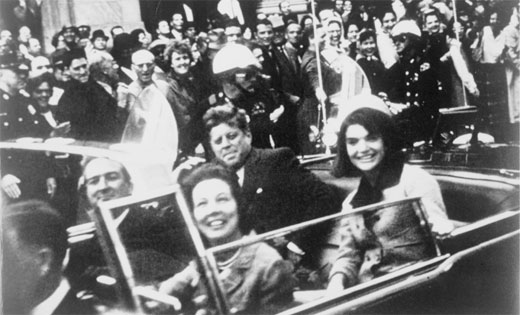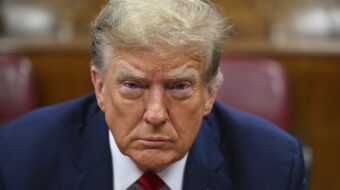
DALLAS – While the nation at large prepares to mark the 50th anniversary of John F. Kennedy’s assassination on Nov. 22, 1963, few cities have a slate of activities to rival that of Dallas. Dealey Plaza in the West End district, a National Historic Landmark and the site of the assassination, has a weeklong schedule of events and tributes to honor the slain 35th president and cultural icon.
Professional commentators seem consumed with pointless exercises of “what if,” while the public chooses to remember a legacy defined by the president’s youthful charm and glamorous lifestyle, immortalized in film and the tabloid culture that JFK helped to create. When pressed to name Kennedy’s signal accomplishment, however, or any accomplishment, most people draw a blank. What, exactly, did Kennedy do with his 34 months in the White House?
He did not write the famous inauguration address, justly regarded as one of the greatest in American history. No one really knows who did, but it was certainly a team of professional speechwriters. Kennedy also did not write his Pulitzer-Prize-winning book, “Profiles in Courage,” at least not without substantial help from Theodore Sorensen. While associated with the civil rights movement, it was left to Kennedy’s successor, Lyndon Baines Johnson of Texas, to bully the Civil Rights Act through a hesitant Congress. In his adherence to Eisenhower’s domino theory, Kennedy sent the first U.S. troops into Vietnam, and set the stage for the worst foreign policy debacle in U.S. history. Even his image as a family man, the fairytale of Camelot, has been revealed as a tawdry sham, thanks to well-documented instances of JFK’s extramarital “encounters.”
For all of Kennedy’s iconic status, his complicated legacy makes it difficult for the greater public to measure him according to his actual accomplishments. Kennedy’s achievements were not as easily packaged as his good looks or his wife’s penchant for Chanel suits. Kennedy’s true legacy is more complex.
Of greatest significance, however, is the fact that Kennedy backed away from the racist and ideological lines drawn by his predecessors and rabidly defended by certain segments of the public. In doing so, Kennedy set the stage for the advancements he was unable to accomplish on his own.
After the 1961 Cuban Bay of Pigs fiasco failed to earn Fidel Castro’s head, Kennedy never again attempted outright acts of warfare to topple the Cuban government. This policy infuriated members of the ultra-right, and this fury was stoked into outright hatred with Kennedy’s eventual actions in resolution of the 1962 Cuban Missile Crisis. The crisis began when Kennedy’s pointless and incorrect remarks about a “missile gap” provoked an arms race with the Soviet Union, which culminated in Khrushchev’s deployment of 90 missiles to Cuban bases. For 13 days, the world stood at the edge of a nuclear abyss. Finally, in secret dealings with the Soviets, Kennedy agreed to withdraw missiles from southern Italy and Turkey. In return Khrushchev promptly withdrew the Cuban missiles, and thus began a new period of open communication between the world’s two superpowers.
The ultra-right seethed over Kennedy’s turn away from the “hard-line'” symbolized in such accomplishments as the Moscow-Washington hotline and the ban on airborne nuclear tests. The far-right campaign of hostility on these moves by Kennedy, combined with a racist campaign against his grudging but finally positive actions on civil rights, contributed to the lowest approval ratings of his presidency: 58% at the time of his assassination. Facing open hatred among racist, ultra-right elements in the South, Kennedy arrived on Nov. 22, 1963 to a city adorned with flyers that labeled him a traitor. Kennedy met with a bullet, and his ambiguities and equivocations as well as the hatred engendered by the positive steps he did take vanished in a haze of martyrdom.
Dallas has commemorated its role in the JFK assassination for over a year, through the Dallas Morning News’ “JFK50” campaign and a regular schedule of public events and memorials. What often goes unmentioned is that, at the time of his arrival, JFK was broadly unpopular among the powers that be in this city, to the extent that people in his administration and here in Texas warned against the trip. When Dallas’ “JFK50” celebrations hit a fever pitch this November, intelligent observers should recognize that the city of Dallas, and by extension the country at large, celebrate the legacy of JFK, husband of Jackie-O, a pop-culture relic. The accomplishments of President John F. Kennedy, dissenter to the ultra-right, have been lost in the sparkle.
Photo: President John F. Kennedy’s motorcade, Dallas, Nov. 22, 1963. Library of Congress












Comments